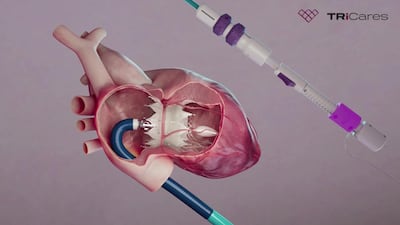Pooled analysis of results from three trials– RADIANCE SOLO, RADIANCE TRIO, and RADIANCE II – show renal denervation with ReCor Medical, Inc.’s Radiance ultrasound system produce consistent blood pressure lowering effect across a broad range of hypertension, including mild to moderate and resistant hypertension.
The pooled analysis is now published in JAMA Cardiology.
Read the full article – start your free trial today!
Join thousands of industry professionals who rely on Medtech Insight for daily insights
- Start your 7-day free trial
- Explore trusted news, analysis, and insights
- Access comprehensive global coverage
- Enjoy instant access – no credit card required
Already a subscriber?




